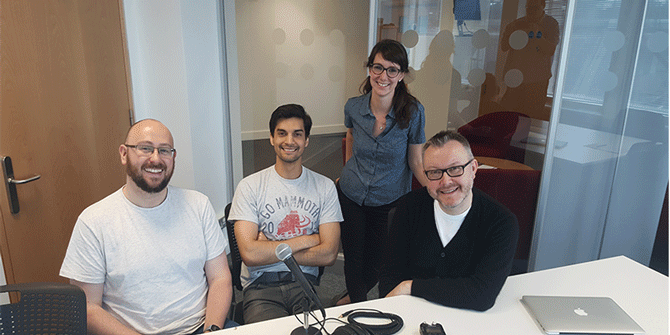New ideas and technologies are not the product of a few far-sighted geniuses but arise through societies and social networks acting as ‘collective brains’, says new research from LSE and Harvard University.
The paper, published in the journal Philosophical Transactions of the Royal Society B, argues that, over evolutionary time, individuals who mimicked other successful individuals – eating the foods they ate or hunting with the tools they used, for example – became successful themselves without necessarily understanding why. Over time, innovations emerged through the mixing of ideas, serendipity and incremental improvement. These accumulated over generations and were similarly passed on as ‘cultural knowledge’ leading to the complex world we live in today.
Dr Michael Muthukrishna, assistant professor at LSE and lead author of the research, explains: “The processes of cumulative cultural evolution allow technologies and techniques to emerge, which no single individual could create on their own – because human brains, in isolation, aren’t actually all that smart.
“We can see this process at work when two people have the same apparently innovative idea at the same time – such as Charles Darwin and Alfred Wallace with the theory of natural selection. Rather than being heroic geniuses, Darwin and Wallace were in the same ‘cultural milieu’, both reading the same books and both travelling to biologically diverse island environments.”
While individual abilities vary, collective brains make each brain within it cleverer. The theory helps explain why there have been dramatic increases in IQ test scores over time.
Dr Muthukrishna, and his co-author, Professor Joseph Henrich from Harvard University, argue that the rate of innovation in a society is heavily influenced by:
- Sociality Larger, more interconnected societies – where individuals are able to mix with people with diverse backgrounds – mean that more ideas are likely to emerge and interact with other ideas
- Transmission fidelity Mechanisms such as books, formal schooling and online courses, allow existing knowledge to be transmitted accurately so it can be ‘built upon’
- Tolerance for deviation Societies which lower the risk for people trying something new help promote innovation. This includes having bankruptcy laws and good social safety nets which allow people to recover in the event of failure. Most entrepreneurs fail, but the few that do succeed cover the costs of supporting the rest.
Dr Muthukrishna explains: “To be an innovator, it’s better to be social rather than smart. There’s no doubt that there are variations in people’s raw skills, but what predicts the difference between a Steve Jobs and a Joe Bloggs is actually their exposure to new ideas that are wonderful and different.
“If you want to be more creative the best thing you can do is to talk to people who disagree with you.”
The researchers present a new evolutionary model of cultural evolution and connect it to research on innovation and intelligence. They conducted an original statistical analysis showing that the processes underlying innovation have also shaped innovations within languages.
Posted: Monday 29 February 2016
Notes for editors
‘Innovation in the collective brain’ by Michael Muthukrishna and Joseph Henrich, Philosophical Transactions of the Royal Society B
For more information
Sue Windebank, Senior Press Officer LSE, T: + 44 (0)20 7849 4624, e: s.windebank@lse.ac.uk





